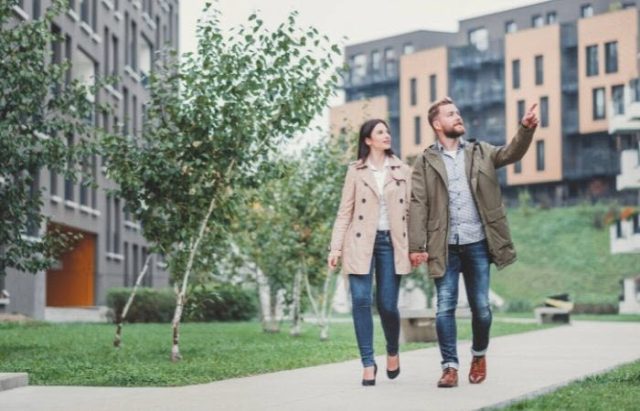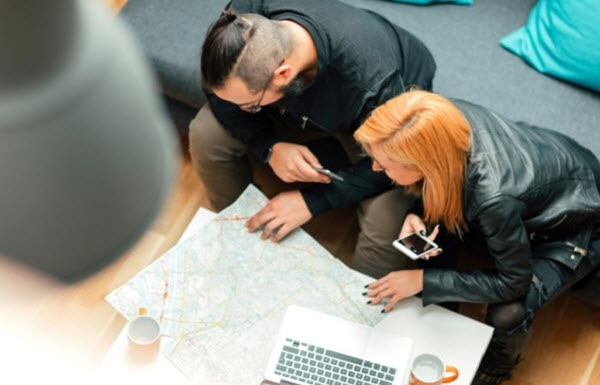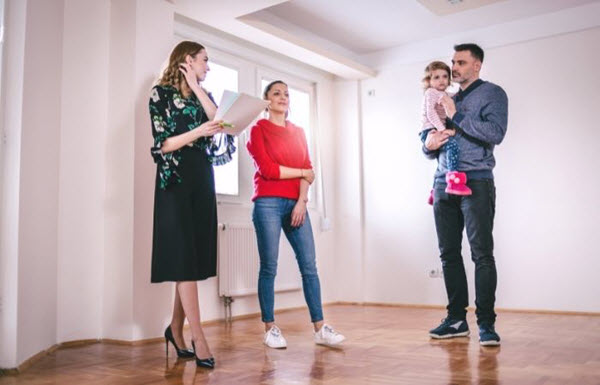Things To Consider While Searching For A Rental Apartment
By Rebecca Hill
January 10, 2024 • Fact checked by Dumb Little Man

People who find themselves having to move from one place to another for their work find it easier to rent an apartment instead of buying one. With so many options available for apartment rentals today, renters can choose from condos, flats in homes, high rises, hotel apartment complexes, and more.
However, when looking for a rental apartment to suit your needs, you have to take your time and find an apartment where you will have the convenience, space, and comfort you desire. Renting allows you to save more money and avoid being “house poor” while also freeing up your time without any of the maintenance worries of a homeowner. Here are things to consider when searching for a rental apartment.
Where To Look For An Apartment
Even when renting, the old real estate priority of location, location and location still applies! You want to consider where your apartment is located and ensure it has all the things important to you nearby. This includes:
- Access to local transportation whether it is public buses and subways, or nearby major highways to get you to and from work.
- The basic facilities readily available and whether they suit your needs and lifestyle.
- Local amenities such as grocery stores, parks, movie theatres, shopping, etc.
The trick is to look for the things most important to you. For example, a family needs to worry about the schools in the area whereas a young single person might be more interested in local restaurants or bars. A young couple might want to be closer to parks to walk their dogs or get in their daily jogs, where seniors might want to be closer to health care and their families.
Identify Your Housing Needs And Budget
Next, consider what type of building you require before choosing an apartment:
- Would you prefer a low rise or high rise?
- A house, or an apartment complex?
- Do you want amenities such as a swimming pool, or do you require the bare minimum at your facility?
- Are stairs a problem – would you prefer an elevator?
You also need to consider your budget. How much can you afford to spend on rent? A few tips to determine your rent budget include:
- What is your monthly income after tax?
- Do you have any debt you have to pay down each month?
- How much do you spend on staples such as groceries, personal care items, and transportation each month?
- How much do you pay for things such as car payments, your phone, car insurance, etc.?
Consider the additional money you need to go towards things such as entertainment, travel or clothes. What about savings for things such as RRSPs, kid’s education, travel, etc.?
Ideally, you want to pay an affordable amount of rent that allows you to enjoy a comfortable lifestyle.
Other Things To Consider Before Renting
Your rental apartment hunt requires several considerations before you make a commitment to signing a lease, including:
Upfront costs: Most leases require you to pay first and last month’s rent, and/or leave some form of a deposit to cover possible damages caused to the apartment. You should be given most of your deposit back when you move if the apartment is left in the same condition as when you moved in. The last month’s rent, however, goes towards your final month at the apartment or is used in case you either break the lease or decide to move out without providing notice.
If you need a cosigner: If this is your first apartment you might find you require a cosigner to help guarantee the rent will be paid in case you cannot meet your monthly rental payments. Often people rely on their parents, so be certain you have someone available as a co-signer before starting your hunt.
Lease terms: This is more important today than ever as there can be many important lines in the lease that could put you at risk of breaking the terms, from smoking legal marijuana to sub-renting your apartment as a short-term unit. Read the lease thoroughly and be certain to ask a third party such as a lawyer if there is anything that is unclear.
Amenities: This would include things such as laundry rooms, swimming pools, barbecues in a common area, a gym, etc.
Safety: Safety is very important if you are considering a basement apartment or a unit in a home or low-rise building. Often these apartments are not up to code. Consider escape routes other than your main entry door. Are the windows large enough to escape? Is there another door you can use to leave your apartment safely? Is the apartment equipped with working smoke and CO2 alarms?
Parking facility: Is there parking available both for yourself and guests? Is your parking included in your rent or is it extra? Often condo rentals do not include parking or charge extra for a parking space.
Pets: Are pets allowed and if yes, does it include your particular type of pet?
All of these considerations will help you prepare for your apartment hunt.
Why is renting better than buying?
In most cases, renting proves to be a far more affordable option than buying. Plus, as long as you have good credit, you don’t have to pass a stress test as you do when applying for a mortgage. You have more flexibility and can move more easily should you be unhappy in your apartment, you decide to live with your partner, or your job changes. Renters also have lower insurance costs compared to what you have to pay as a homeowner.
Conclusion
Before renting an apartment, it’s important to make sure it meets your needs in a convenient location with the facilities that suit your lifestyle. Choosing to rent provides you more cash each month and the flexibility to move as you wish. You also avoid investing so much time and money in home maintenance so you can just enjoy life.
Rebecca Hill
Rebecca Hills is the community manager at Oegema, Nicholson & Associates. She loves to write about home security and home improvement. She leverages her knowledge to educate people for keeping their homes safe.



